Now that the latest Montreal Canadiens era is over, ex-general manager Marc Bergevin’s legacy is under the microscope. In Bergevin’s own statement following his dismissal, he cited that same legacy, saying he’s proud of what he’s accomplished over almost an entire decade with the organization.
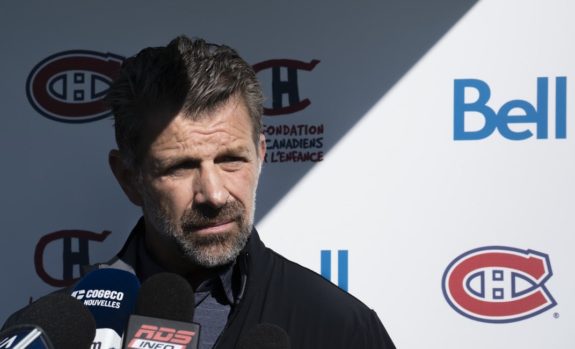
There have admittedly been huge highs during Bergevin’s tenure, recently in fact, but also valleys just as deep to at least in part negate the peaks. Did the good outweigh the bad? You be the judge based on what amounts to the top five hits and misses that arguably make up Bergevin’s legacy:
5. Jesperi Kotkaniemi’s Departure
One lasting memory of Bergevin’s tenure will undeniably be his last offseason, even if only due to admitted recency bias. Unfortunately, it didn’t go smoothly as arguably his own personal worst as a GM. It ties back a few years to the offer sheet to which Bergevin signed Carolina Hurricanes forward Sebastian Aho in 2019. Fast-forward to this past summer, when the Hurricanes got their payback by signing away former-No. 3-overall-pick Jesperi Kotkaniemi through much the same process.
With just 22 goals scored in 171 games as a Hab, Kotkaniemi didn’t exactly live up to expectations. It made it hard for Bergevin to justify matching the $6.1 million price tag, especially with Nick Suzuki about to break the bank, eventually heading to restricted free agency himself.
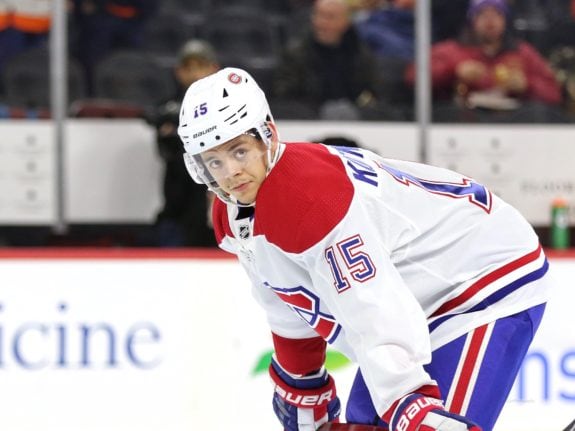
In fact, no one is suggesting Bergevin did the wrong thing by letting Kotkaniemi walk. However, waiting as long as he did to re-sign Kotkaniemi certainly didn’t help, especially when the Hurricanes had inquired about trading for the Finnish center before making their move. Bergevin had to imagine the offer sheet was at least a possibility.
Maybe he did and just felt the compensation he was going to receive in exchange, i.e., the Hurricanes’ first- and third-round picks in 2022 were more valuable than Koktaniemi. There’s a decent argument to be made that’s the case, but to then go ahead and trade that first-round pick (and a second) for Christian Dvorak speaks to bad asset management more than anything else, made all the more noteworthy due to Dvorak’s struggles this season, not to mention the Canadiens’ overall. Why rush to replace Kotkaniemi in the lineup and pay a premium on top of that when all you’re in the running for past Thanksgiving is a(nother) lottery pick?
4. Bergevin’s Poor Drafting Record
Owner Geoff Molson actually called out the Canadiens’ draft record during Bergevin’s tenure at the press conference announcing the dismissal of both him and assistant GM Trevor Timmins. In the 10 drafts, the Canadiens have picked No. 3 twice, getting Kotkaniemi in 2018 and Alex Galchenyuk in 2012. Neither is with the organization anymore.
In fact, Bergevin’s draft record has been spotty at best, with his best picks either blossoming elsewhere or never developing past role-player status on the Habs. Case in point, only one of his first seven first-round picks is still with the organization (Ryan Poehling), which is embarrassing, considering the first ever, Galchenyuk, is just 27.
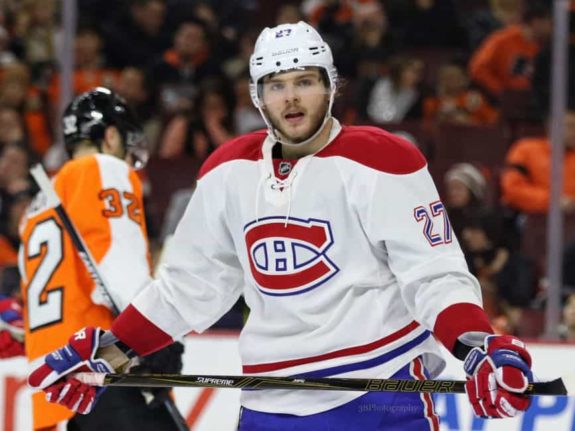
To be fair, it’s an issue that predates Bergevin, with Carey Price (2005) being the last first-round pick to stay with the team past his prime. Seeing as Timmins has been with the team since 2003, overseeing amateur scouting in various capacities over the years, there’s enough blame to go around.
Of course, the Canadiens as an organization haven’t really consistently excelled at drafting since the 1980s. So, it’s clearly more systemic than anything else, and, yet, when the Canadiens made Logan Mailloux their 2021 first-round pick, it spoke to a decision Bergevin himself has to own.
Breaking it down: Bergevin went with a defenseman who has been criminally convicted for non-consensually sharing a photo taken during an intimate encounter. Who had literally asked not to be drafted. When amateur scouting had been at standstill last season during the pandemic. And the Habs could have literally taken anyone else without so much as raising an eyebrow during a crapshoot of a draft.
It was dumbfounding at best, offensive in principle to (at least) 50% of the team’s fanbase at worst, and an unfortunate exclamation mark on Bergevin’s drafting career with the Habs.
3. Canadiens Defense in its Current State
One of those aforementioned first-round picks was of course Mikhail Sergachev, who was infamously traded for Jonathan Drouin to the Tampa Bay Lightning, with whom he has won two Stanley Cups. Obviously, Sergachev is not the driver of the Lightning’s defense, but he is key cog and one the Canadiens could certainly use.
That trade combined with several other odd decisions has helped descend the Habs’ defense into a state of disrepair. For example, they’ve lacked mobility on the top pair since Bergevin played an ill-advised game of hardball with Andrei Markov (and Alexander Radulov) back in 2017. He lost them both, signing Karl Alzner, who was eventually bought out, instead.
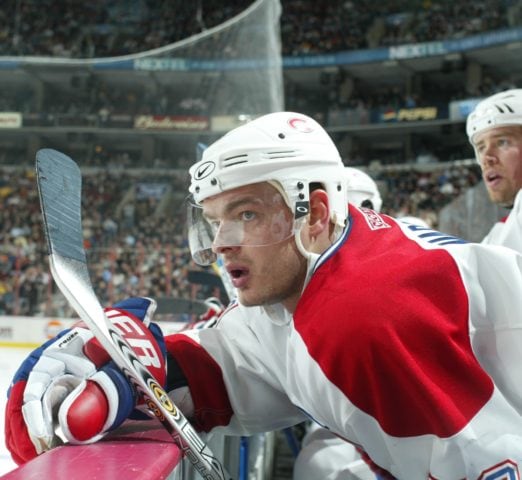
No one should be surprised at how the team’s defense is constructed, with three stay-at-home defensemen in the top four. After all, Bergevin, who was known as a steadying presence in his own end during his playing days, is the foreman. Look at it this way: the team’s most productive defenseman, Chris Wideman, was projected to be the seventh one heading into the season and the objectively best defenseman on paper, Jeff Petry, is last in scoring with just two assists so far this season.
It just reinforces how upside-down the situation is, especially the emphasis on size as opposed to speed in today’s NHL. On the plus side, there is hope on the horizon, with half the regulars poised to hit free agency next offseason and hopefuls like Mattias Norlinder drawing praise for their skill sets. By the time he ends up making an impact though, it will obviously have been too late to reflect well on Bergevin (to at least save his job).
2. Trading P.K. Subban for Shea Weber
The decision to trade P.K. Subban for Shea Weber ushered in that aforementioned emphasis on the back end. To illustrate the point, the season before the trade, the Canadiens’ defense was made up of Subban, Markov, Petry, Tom Gilbert, Nathan Beaulieu and Alexei Emelin. It’s almost night and day compared to the current situation, aside from the fact that team missed the playoffs without Price either.
That’s in part the point though, how Subban was arguably scapegoated for the team’s struggles. The following season, Subban helped the Nashville Predators reach the third round for the first time in franchise history and then the Stanley Cup Final. One season after that, he was nominated for the James Norris Memorial Trophy.
You may also like:
- Canadiens’ Best Contracts for 2024-25
- Canadiens Could Benefit From New KHL Rules and Get Demidov Early
- Canadiens Can’t Guarantee Barre-Boulet 2024-25 Roster Spot
- NHL Rumors: Canadiens, Oilers, Sharks
- Revisiting Oilers’ Draisaitl-For-Subban Blockbuster That Almost Happened
In contrast, the Canadiens got upset in the first round by the New York Rangers that first post-trade season, 2016-17. They then went on to nearly miss the playoffs in four of five seasons for what would have been the second time in franchise history. Instead, the COVID-19 pandemic hit and the Canadiens got a second chance in 2020, earning a berth by defeating the Pittsburgh Penguins in the play-in round.
That modest level of success served as a precursor for Bergevin’s 2020 offseason, during which he built up the team to admirably make a go of it, with Phillip Danault and Tomas Tatar, two thirds of the team’s first line, on the verge of hitting unrestricted free agency.
It paid off as the Canadiens reached the Stanley Cup Final, thereby mirroring the Predators’ success with Subban. While the Canadiens would obviously prefer to have a healthy Weber, the fact that he’s projected to stay on long-term injured reserve the rest of his career is a fiscal blessing in disguise for the Habs, effectively giving them the best of both worlds in this scenario.
The Canadiens are in theory no longer tied to Weber’s untradeable contract, which was an oft-under-reported consequence of the Subban trade in the first place, but arguably its biggest ramification, all the same. Now that Weber’s effectively retired, the trade has to go down as a decent one by Bergevin. It’s not the clear win some of its and his biggest supporters are quick to claim it was, but the critics can’t realistically deny it worked out in the end (with obvious exception to Weber’s health; May he have an eventually completely healthy retirement).
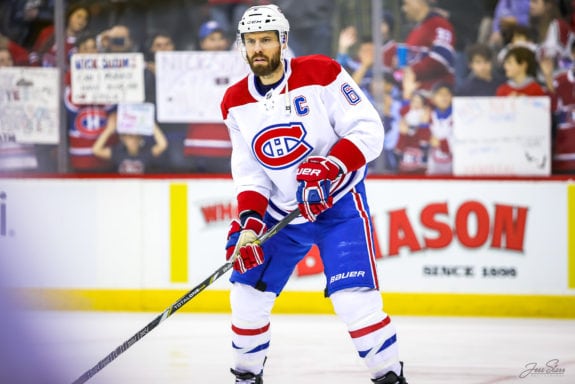
So, you can hate why the trade was made in the first place, because the reasons behind it were shady. Hating the trade itself makes no sense at this point, especially with Subban retired now. There’s a case that Subban might have (emphasis on might) been able to make the Habs more competitive between 2017 and 2020, but, ultimately, Weber proved capable of making more of a positive impact on his way out, leaving the Habs (for all intents and purposes) on the biggest of highs (even taking into account the harrowing defeat to the Lightning), i.e., the Canadiens’ best finish since 1993.
1. Stanley Cup Final Appearance
Bergevin had something to do with that as well, even if, by all accounts, Price was driving the bus all the way to the Final. Credit to Bergevin though, in the sense that he built a team around Price capable of finding success in the playoffs. The regular season may be a different story, but, still, no one can take last summer’s playoff run away from him.
That’s his lasting legacy, officially the culmination of nearly a decade’s worth of work, even though it’s been less than half that since the latest retool began. It’s not entirely clear whether that should be considered a point in his favor or not, because it can be construed as Bergevin, on his third head coach by the end, having been given yet another chance. He almost made good on it though. In a 32-team league, where Stanley Cup Final berths don’t grow on trees, getting that far only to fall short is still an accomplishment.
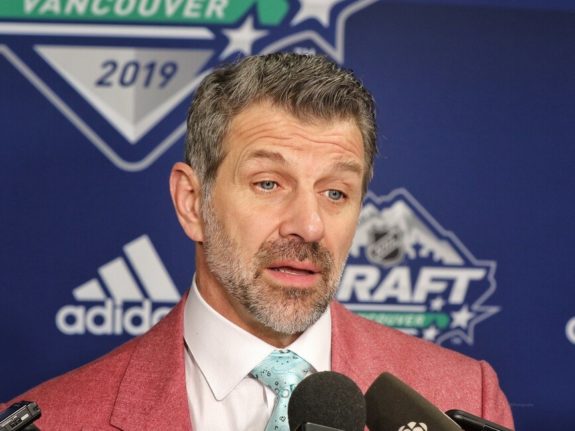
Unfortunately, the timelines didn’t sync up quite right in the sense that Bergevin had one more season under contract to go between the Final appearance and the expiry of his deal. With Danault and Tatar leaving via free agency and one more year of wear and tear on the likes of Price and Weber, it was always going to be difficult to parlay that success into so much as another playoff berth, especially back in the Atlantic Division.
Related: Canadiens Wisely Fire Bergevin and Spare Ducharme
Bergevin wisely went for it when he did. He not so wisely put together the offseason he just did as an encore. No one should doubt that, if Bergevin’s deal had been set to expire at the end of last playoffs instead, there’d be no reason for this piece. He’d theoretically have been re-signed with the salary line in the contract left blank for him to fill as he so desired.
Granted, there had been suggestions Bergevin wasn’t willing to continue on as Canadiens GM past this current season anyway, in which case it makes sense Molson would want to have someone new in charge ahead of the trade deadline. It makes sense just looking at the standings, though.
Furthermore, looking at how last regular season went and how this current one is going, it’s easy to assess the playoff success as (purely coincidentally) “lightning” captured in a bottle. It wasn’t so much luck last playoffs as everyone getting on the same page at the same time. With so much roster turnover (in spite of what Bergevin has said) that page has turned as well. In fact, it’s a whole new chapter. Clearly.
